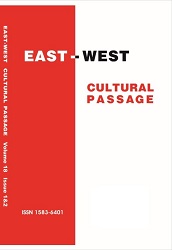Understanding Arab American Identity through Orientalist Stereotypes and Representations in Mohja Kahf’s The Girl in the Tangerine Scarf (2006)
Understanding Arab American Identity through Orientalist Stereotypes and Representations in Mohja Kahf’s The Girl in the Tangerine Scarf (2006)
Author(s): Ishak BerrebbahSubject(s): Gender Studies, Novel, Culture and social structure , Identity of Collectives, American Literature
Published by: Editura Universitatii LUCIAN BLAGA din Sibiu
Keywords: Arab American; Edward Said; Mohja Kahf; identity; Orientalism; stereotypes;
Summary/Abstract: Arab-American women’s literature has emerged noticeably in the early years of the 21st century. The social and political atmosphere in post-9/11 America encouraged the growth of such literature and brought it to international attention. This diasporic literature functions as a means of discussing the Orientalist discourse that circumscribes Arab American identity and its effects in determining their position in the wider American society. As such, this article investigates the extent to which Edward Said’s discourse of Orientalism is employed by Mohja Kahf in her novel The Girl in the Tangerine Scarf (2006) to project the stereotypes and misrepresentations that confine the identity of Arab and Muslim characters in the US society. This article suggests that post-9/11 Arab American fiction serves as a literary reference to such stereotype-based discourse in the contemporary era. The arguments in this article, while employing an analytical and critical approach to the novel, are outlined within postcolonial and Orientalist theoretical frameworks based on arguments of prominent critics and scholars such as Peter Morey, Edward Said, and Jack Shaheen, to name just a few.
Journal: East-West Cultural Passage
- Issue Year: 20/2020
- Issue No: 1
- Page Range: 29-51
- Page Count: 23
- Language: English
- Content File-PDF

